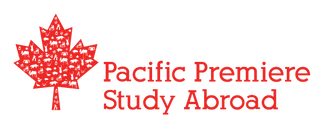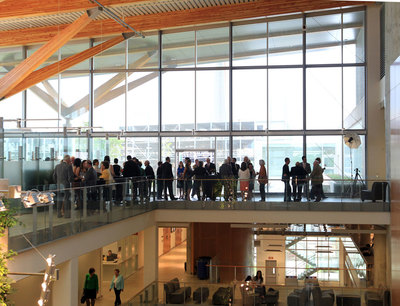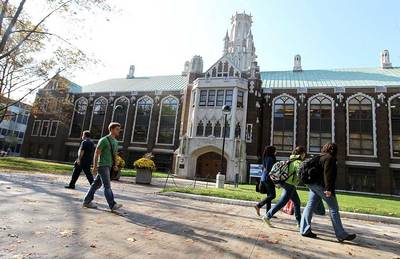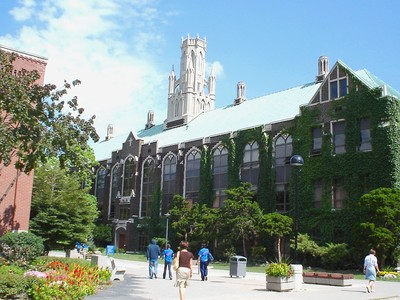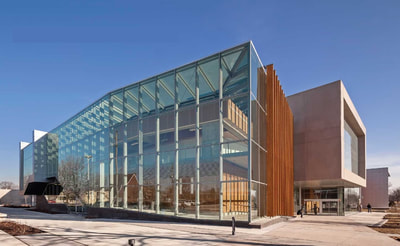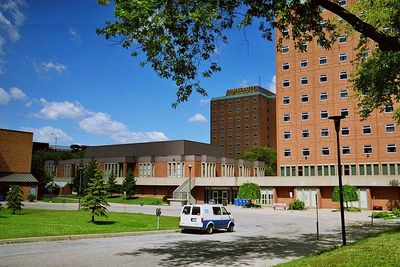โปรแกรม Bachelor of Applied Science in Engineering
สถาบัน University of Windsor
(เมือง Windsor, รัฐ Ontario)
About University of Windsor
มหาวิทยาลัยวินเซอร์เป็นมหาวิทยาลัยรัฐชั้นนำของประเทศแคนาดา ได้ถูกก่อตั้งในปี 1857 ในนาม Assumption College และ ได้ก่อตั้งเป็นมหาวิทยาลัยวินเซอร์ในปี 1962
- สถาบันตั้งอยู่ใจกลางเมืองวินเซอร์
- เพียง 3 ชั่วโมงจากเมืองโตรอนโต้
- สถาบันติดกับแม่น้ำ Detriot River และ เขตเมือง Windsor Detriot Metropolitan area เพียงข้ามสะพานจะถึงประเทศสหรัฐอเมริกา ถือว่าที่ตั้งเหมาะเป็นอย่างยิ่งสำหรับท่านที่สนใจที่จะศึกษา พร้อมหาประสบการณ์ในประเทศแคนาดา และ สหรัฐอเมริกา
Why choose University of Windsor?
- มหาวิทยาลัยวินเซอร์มีชื่อเสียง และ คุณภาพการศึกษาดีเยี่ยม (High Academic Excellence)
- คณาจารย์ และ นักศึกษามาจากทั่วโลก (Truly international)
- หลากหลายโปรแกรมที่น่าสนใจในระดับ ปริญญาตรี ปริญญาโท และ ปริญญาเอก
- หลากหลายสาขาการเรียน
- ได้สัมผัสทั้งประเทศแคนาดา และ ประเทศอเมริกา ซึ่งห่างเพียงไม่กี่นาทีข้ามสะพาน Ambassador bridge (Enjoy the best of both worlds, Canada & USA)
- สามารถทำงานระหว่างเรียนได้ 20 hours/ week
- สามารถทำงานหลังเรียนจบอย่างถูกต้องตามกฎหมาย
Program Details
The demands on professional engineers around the world are increasing in terms of what they must address: technical, societal and environmental issues.
As an engineer, you can contribute to society by helping plan communities, provide clean drinking water, build bridges, or design the next-generation automobile.
The Faculty of Engineering offers programs designed to develop your professional competence and prepare you to solve the technical problems of society and the global environment. UWindsor’s unique climate of co-operation between academic, business and industry sectors gives you access to outstanding career opportunities.
- Provides students with the opportunity to help build the world of tomorrow and improve the world of today
- Cultivates the skills to solve the technical problems of society and our global environment, in a world embracing sustainability
- Includes fully accredited B.A.Sc. Engineering programs and co-operative work/education programs (all disciplines)
Courses:
85-111. Engineering Mechanics I
Statics of particles and rigid bodies; trusses, frames, machines; centroids and centres of gravity; friction. (3 lecture, 2 tutorial hours a week.)
85-118. Engineering and the Profession
The Engineering and the Profession course is an introductory professional course for all Engineering students. The students will be introduced to and learn about various professional and academic topics, and may include but are not limited to: differences and similarities between the various engineering disciplines; academic performance, expectations, and procedures; strategies for academic success; extracurricular student opportunities; important career development issues; academic integrity and ethical considerations; sustainability considerations; and public health and safety responsibilities; and how engineering is broadly related to our society. The fundamentals of technical communications will be introduced, focusing on common technical writing needs, such as grammar, formatting, and style, as well as basic writing forms, such as memos and short documents. Additional topics may include the basics of common engineering measurements, technical principles and approaches, business and legal practices. (3 lectures hours a week.)
85-119. Technical Communications
The Technical Communications course focuses on teaching Engineering students effective oral and written communication techniques and approaches to improve their clarity and comprehensiveness when communicating to a variety of audiences. The topics covered may include but are not limited to: graphical communications, informative presentations; persuasive presentations; the use of visual aids for conveying technical/engineering information when speaking; resumes and job search communications; technical writing styles and formatting; information gathering and analysis; literature research techniques; topic development; summaries and abstracts; the use of visual tools such as graphs, figures, and tables; research documentation and referencing; developing and documenting instructions and procedures; proposals and technical reports. Ethical and legal issues in communications, such as plagiarism, will also be covered. Topics for discussion, assignments, and skills development activities may include issues and aspects taught in 85-118 or other relevant subjects. In addition, students will continue to receive periodic communications relevant to their academic and professional development.
85-120. Engineering Thermofluids
Introductory thermodynamics, fluid mechanics, and heat transfer. Terminology and units; sources of and types of energy and their interchange; types of fluid flow and heat transfer; physical and thermal properties of fluids. Solution of basic problems using laws of thermofluids; exploration of common thermofluid systems. Includes demonstrations and laboratory-based experiments. (Prior knowledge from 85-111 or 64-140 is recommended.) (3 lecture, 2 tutorial/laboratory hours per week)
85-133. Engineering and Design
Introductory engineering design course. Visualization techniques, graphical communication using sketching, isometric drawings, orthographic projection, section views, auxiliary views and descriptive geometry. Drafting portfolio. Design portfolio consisting of open-ended problems: problem identification and formulation; analysis of the problem; problem solving techniques; graphical communication of the solution. Includes group work to develop personal, teamwork, leadership, and task completion skills. (3 lecture, 3 laboratory hours a week.)
85-198. Work Term
Supervised experience in an approved career-related setting with a focus on the application of theory and the development of transferable skills. The co-op work experience is designed to provide students with an enriched learning opportunity to integrate academic theory and concepts in an applied setting. (Prerequisite: Student must be enrolled in a co-operative education program. Offered on a Pass/non-Pass basis. Supervised practicum requires the successful completion of a minimum of 420 hours. Students who do not pass the course may not be allowed to remain in the co-op program.)
85-212. Thermodynamics
An introductory thermodynamics course in which fundamental principles are developed. Included are ideal gas relations, properties of pure substances, First Law for closed and steady flow systems, the Second Law with entropy relations, and an introduction to cycles. (3 lecture, 1.5 tutorial hours a week.) (Prerequisite: 85-120)
85-218. Mechanics of Deformable Bodies
Introduction to stress, strain, stress-strain relations, and mechanical. A study of simple structures subjected to either axial load, flexure, and torsion, including flexure of beams, eccentric loads, shear and bending moment diagrams, shearing streses in beams. Additional topics may include statically indeterminate problems. (Prerequisites: 85-111 and 62-140.) (3 lecture, 3 laboratory/tutorial hours per week.)
85-219. Engineering Materials Fundamentals
This course explains how the properties of solid materials are derived and are related to their basic crystallographic and electronic structures: Metals, ceramics, polymers, and electronic materials are covered. (3 lecture, 2 laboratory or tutorial hours a week.)
85-220. Numerical Analysis for Engineering
Application of numerical methods to real-world engineering problems. Development of mathematical background for numerical techniques. Root finding; numerical linear algebra; curve fitting; numerical quadrature; numerical solution to ordinary differential equations. (Prerequisite: 85-232.) (3 lecture, 2 laboratory or tutorial hours a week.)
85-222. Engineering Treatment of Experimental Data
Treatment of engineering data using the concepts of frequency distribution; measures of central tendency and dispersion. Probability; random variables; discrete and continuous distributions. Tests of hypotheses; estimation; goodness-of-fit test; linear regression and correlation. Applications using computers in engineering design problems, quality control, and manufacturing processes. (Prerequisite: 62-140.) (3 lecture hours, 1 tutorial hour a week.)
85-230. Advanced Engineering and Design
Computer aided design applications for engineering graphic communication. Solid modeling; orthographic projection and isometric drawing; sections and conventions; dimensioning and tolerancing. Design portfolio and project. (Prerequisite: 85-133) (4 lecture/laboratory hours a week.) (Credit cannot be obtained for both 85-130 and 85-230.)
85-232. Engineering Software Fundamentals
Fundamental engineering problems and the application of digital computers to analyze these problems. Introduction to additional programming languages and computing concepts, and emphasizing the use of MATLAB in engineering computations (2 lecture, 2 tutorial hours a week.) (Credit cannot be obtained for both 85-232 and 85-132.)
85-233. Fluid Mechanics I
Fluid properties and basic concepts, fluid statics, equations of motion, one dimensional flows, flows in pipes in series, parallel and networks, dimensional analysis and similitude. (3 lecture hours, 1 tutorial hour a week.) (Prerequisite: 85-120)
85-234. Electrical and Computing Fundamentals
Electric charge, electric fields and potentials; conduction, resistivity, circuit variables, ideal sources and components; diodes; simple resistive circuits; techniques of circuit analysis, mesh and node analysis; network theorems, Thevenin and Norton theorems; source transformations; operational amplifiers, circuits, analysis and applications; inductance, capacitance; computer-oriented solution methods using SPICE and MATLAB. This course is for non-electrical engineering students. (3 lecture, 2.0 laboratory/tutorial hours or equivalent a week.) (Credit cannot be obtained for both 85-234 and 88-124 or 85-234 and 85-124.) [Note as of Winter 2012: Credit cannot be obtained for both 85-234 and 85/88-124 or 85-234 and 85/88-214]
85-250. Engineering and the Environment
Introduction to: pollutants, natural cycles, natural energy use, human population and consumption, common environmental problems, effects on human health. Dimensions of environmental contamination and flow. Pollution Prevention: waste audits, mass balances (open and closed systems, with and without chemical change), waste reduction, industrial ecology, and design for the environment. Conversion of energy and efficiency. Energy: world consumption, sources and their potential, environmental effects. Occupational health and safety. Environmental legislation. Sustainability. (Prerequisite: 59-110.) (3 lecture, 2 laboratory/tutorial hours or equivalent a week.)
85-298. Work Term I
Supervised experience in an approved career-related setting with a focus on the application of theory and the development of transferable skills. The co-op work experience is designed to provide students with an enriched learning opportunity to integrate academic theory and concepts in an applied setting. (Prerequisite: Student must be enrolled in a co-operative education program. Offered on a Pass/non-Pass basis. Supervised practicum requires the successful completion of a minimum of 420 hours. Students who do not pass the course may not be allowed to remain in the co-op program.)
85-313. Engineering Economics
Cost estimation, cost accounting, and cost control. Comparison of engineering alternatives by annual cost, present worth, and rate of return methods. Depreciation and taxes. Equipment replacement. (3 lecture, 1.5 tutorial hours a week.)
85-398. Work Term II
Supervised experience in an approved career-related setting with a focus on the application of theory and the development of transferable skills. The co-op work experience is designed to provide students with an enriched learning opportunity to integrate academic theory and concepts in an applied setting. (Prerequisite: Student must be enrolled in a co-operative education program. Offered on a Pass/non-Pass basis. Supervised practicum requires the successful completion of a minimum of 420 hours. Students who do not pass the course may not be allowed to remain in the co-op program.)
85-421. Engineering and Society
The technology-society relationship in a historical context; the nature of technological change and its consequences; the engineer's role in the control of technology and sustainable development; the responsibility of engineers for health and safety in the workplace, including OHSA, WHMIS. The development of the engineering profession; professional registration and the code of ethics; the duties and responsibilities of engineers; the engineer and the law. (Restricted to fourth-year students.) (3 lecture hours a week.)
85-483. Engineering Report
The course prepares the students to present a problem, an observation, or idea, and to analyze it logically and draw conclusions or make recommendations. The course content includes acceptable technical content involving engineering analysis, design, development, or research. The course outcome includes generating a report to demonstrate a satisfactory level of writing and graphical skills, thus the quality of the presentation will be a factor in determining the acceptability of the report. The final report should be about 5,000 words long, or 25 double-spaced typewritten pages not including tables and graphs, and includes a signed statement that it was written by the candidate. (Open to BEngTech Majors)
85-498. Work Term III
Supervised experience in an approved career-related setting with a focus on the application of theory and the development of transferable skills. The co-op work experience is designed to provide students with an enriched learning opportunity to integrate academic theory and concepts in an applied setting. (Prerequisite: Student must be enrolled in a co-operative education program. Offered on a Pass/non-Pass basis. Supervised practicum requires the successful completion of a minimum of 420 hours. Students who do not pass the course may not be allowed to remain in the co-op program.)
Career Tracks:
- State-of-the-art manufacturing and production
- Business
- Government
- Systems design/operation/building/maintenance
- Consulting
- Transportation
- Pollution control and prevention
- Advanced computing and communications
- Medicine and medical technology
- Bio-based engineering solutions
- Research and development
- Structural design
- Failure analysis
- Construction and infrastructure renewal
- Scheduling and optimization
- Automotive industry
- Environmental protection
- Project, process and systems management
- Robotics and advanced electronics
- Power generation and distribution
Admission Requirements:
ENG4U, MHF4U, SCH4U and SPH4U required. MCV4U strongly recommended. 74% average in all attempted Science and Math courses, excluding SBI4U. Students may apply for optional Co-op when applying for admission to the program.
Contact Us
หากน้อง ๆ หรือคุณพ่อคุณแม่มีคำถาม หรือสนใจรับโบรชัวร์ สามารถแจ้งได้ที่
ออฟฟิศแปซิฟิคสาขากรุงเทพฯ
(083) 358-7000, (086) 881-3084, (085) 658-7000
ออฟฟิศแปซิฟิคสาขาแวนคูเวอร์
(778) 995-4763, (604) 716-0478
พี่ ๆ ทีมงานยินดีพร้อมประสานงานและบริการการสมัครวีซ่าประเทศแคนาดาและวีซ่าอเมริกาอย่างครบวงจรค่ะ นอกจากนี้จะมีทีมงานต้อนรับและศูนย์แปซิฟิคสาขาเมืองแวนคูเวอร์ค่ะ
